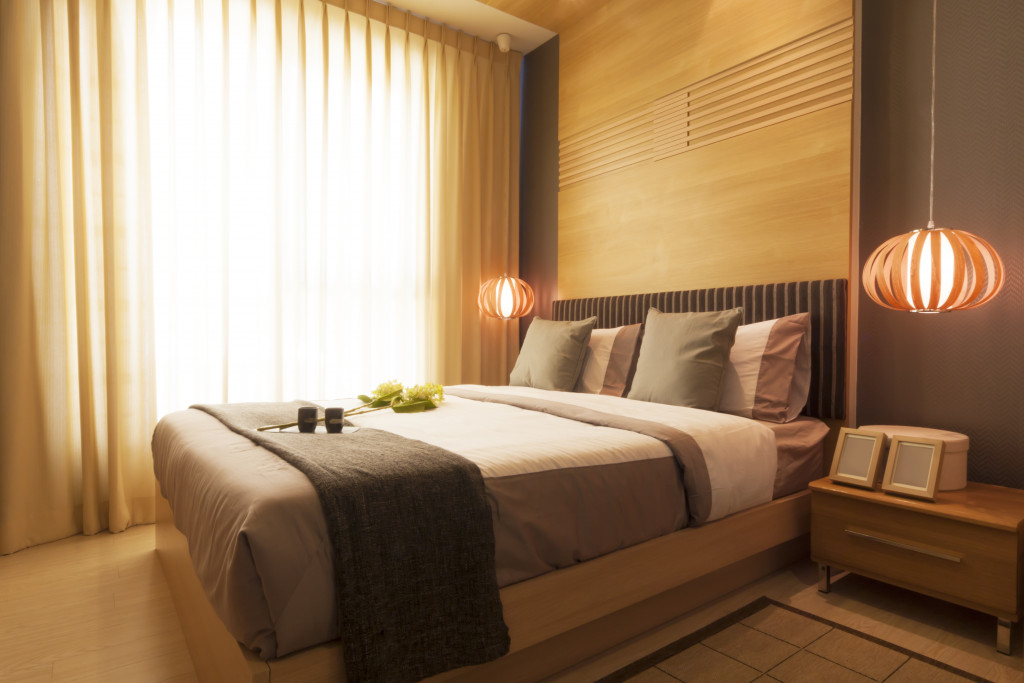Staying in a hotel while traveling can either be a lot of fun or downright uncomfortable. Unless you stay in a four or five-star accommodation, you can’t be too sure that your experience will be as comfortable as the hotel advertises. Sometimes, even expensive places can be a source of the most common hotel discomforts.
So whether you are staying in a five-star hotel or opting for a place that’s easier on your wallet, here are the best ways to fix uncomfortable hotel problems:
1. Poor ventilation
It’s not easy to breathe in a stuffy hotel room, much less get some well-deserved sleep. If your hotel room is poorly-ventilated, you can improve the circulation of air by opening the windows and turning on the fan. If possible, leave the door open as well when you first arrive to get the air moving. Then when you’re about to go to bed, turn on the air conditioner and lower the temperature to around 60 to 67 degrees, which is the temp range that should help you fall asleep faster.
A stuffy hotel room can also mean that there allergens and pollutants flying around the room. This is obviously bad news if you are sensitive to dust, pollen, insect emanations, and other types of air contaminants. While you can’t do much if the hotel hasn’t conducted their routine air duct cleaning or changed out the air filters in the room yet, improving the movement of air in the room can help keep pollutants at bay. When all else fails, take anti-allergy medication to avoid experiencing symptoms.
2. Noise
You can easily call the hotel management if your neighbors are making too much noise or someone’s kids keeps running down the hallway. However, your hotel can’t do anything about the noise that is out of their control, such as traffic outside or ongoing construction nearby. If you really can’t handle the noise, ask to transfer to a room that is in a quieter part of the building or a room in another hotel in the area operated by the same company.
To be safe, bring a pair of earplugs or noise-canceling headphones whenever you’re traveling. You can also download a white noise app on your phone to help you fall asleep despite the noise outside.
3. Uncomfortable mattress
Few things are worse than having a bad hotel mattress. Sleeping in an unfamiliar bed is already challenging enough, but when you have a bad mattress on top of it? You may be looking at a night of restless sleep–if you even get to sleep at all.
Here’s what you can do if you end up with an uncomfortable mattress: If the mattress is sagging, as is the case for overused hotel beds, place extra blankets and pillows underneath to adjust the position to a more comfortable one. Ask to transfer to another room the next day or have management replace the mattress with one that’s not saggy. On the other hand, if the mattress is hard as stone, place the comforter on top of the mattress and underneath the sheets to soften the surface.
Pro tip: It’s a good idea to bring a mattress topper with you, especially if you are a frequent traveler and find it impossible to fall asleep on a hard mattress.
4. Cheap sheets and pillows

Cheap sheets are scratchy and can be thinner than toilet paper, while cheap pillows can either be too lumpy or too hard. Try asking for new sheets or pillows from housekeeping. But if the replacements are of the same quality, then you have no choice but to make do.
This is why bringing your own pillows and sheets is important for maximum comfort during your hotel stay, especially if you’re staying in a cheaper place.
5. Visible dirtiness
Housekeeping does quick once-overs of the rooms between each guest, so they’re not exactly deep-cleaning the bed, the floors, the bathroom, and pretty much everything else in the hotel room. This can lead to visible dirtiness lingering after you arrive, such as smudges on the mirrors, dust on the table, bits of debris in the trash can, or a few questionable stains on the toilet seat. When faced with this type of situation, the best thing to do is call housekeeping and point out the things that they may have missed.
Your hotel room experience can easily affect the quality of your entire trip. If you happen to be unlucky enough to face these hotel discomforts, knowing what to do to fix them can help turn the situation around and avoid spoiling your stay.

